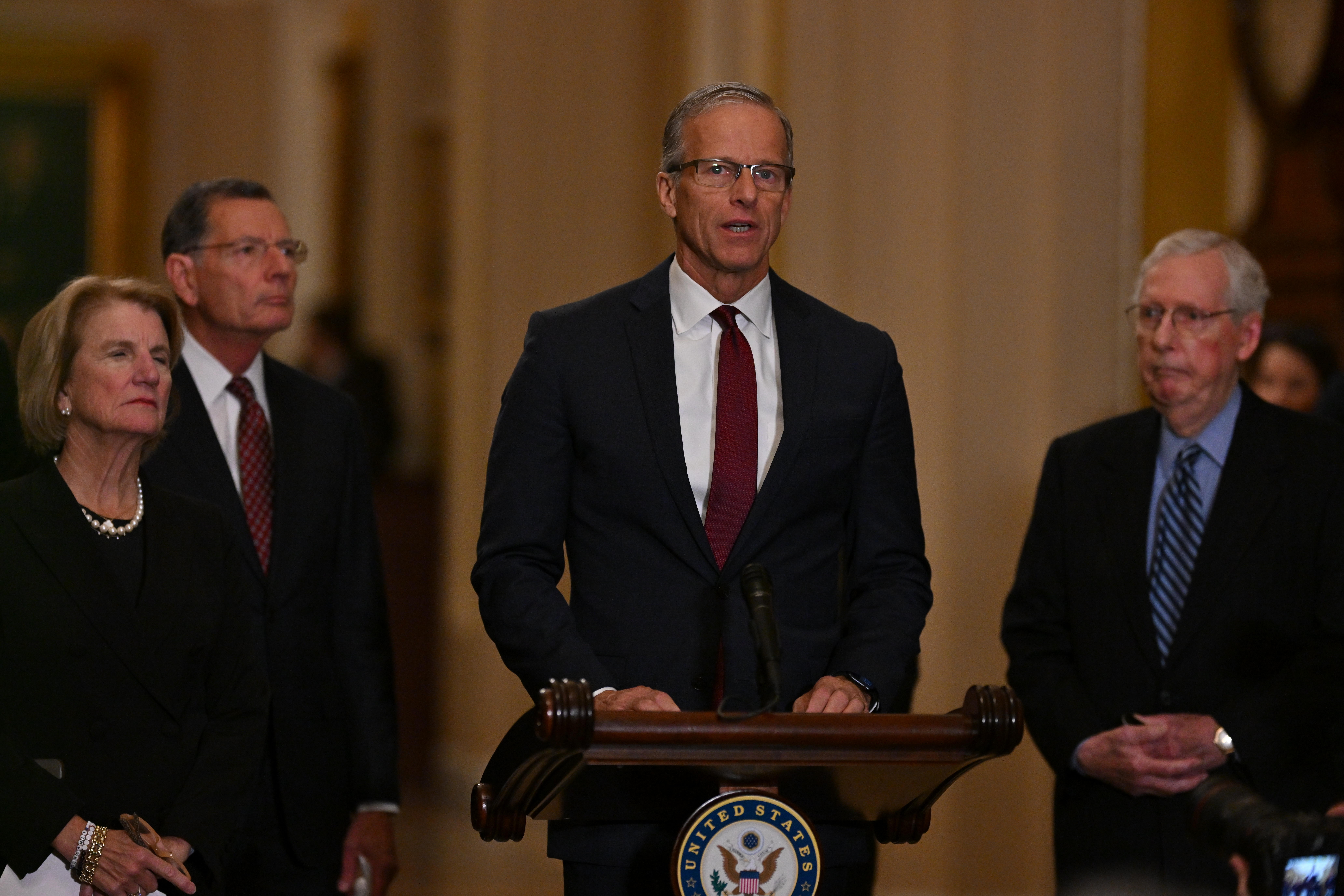On the Hill
Thune preparing to bring up ICC sanctions bill
The Senate majority leader says the Senate, which is taking up Laken Riley Act this and next week, will proceed on the ICC legislation soon

Ricky Carioti/The Washington Post via Getty Images
Minority Whip Sen. John Thune (R-S.D.) speaks to the media following a Senate Policy Luncheon at the U.S. Capitol on November 19, 2024 in Washington, D.C.
The Senate will soon vote on legislation sanctioning the International Criminal Court for issuing arrest warrants against Israeli leaders over the war in Gaza, Senate Majority Leader John Thune (R-SD) said on Wednesday.
Thune confirmed his plans to bring...

































